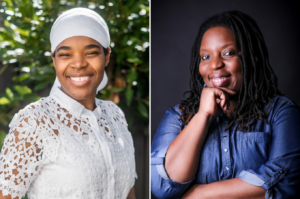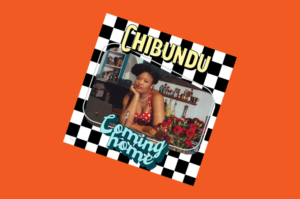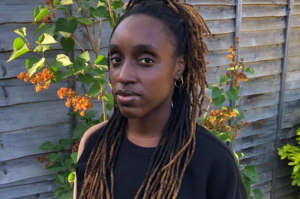Dr. Jeanne-Marie Jackson is a literature Professor at Johns Hopkins. In one of her literature courses dedicated to contemporary African writing, she curates an interview session between her class and South African novelist Masande Ntshanga.
Ntshanga is the author of the critically acclaimed 2014 novel The Reactive. The novel explores drug abuse and HIV in a narrative that has been hailed for its formal innovation.
What you are about to read is a rich and engaging conversation in which Ntshanga fields questions about some of the novel’s striking formal and thematic elements. These students have read and studied his novel. Their questions are quite illuminating as are Ntshanga’s responses.
Before we get to the interview, we thought it would be nice to have Jackson set the scene for us in a short introduction about the course and her approach to teaching African literature.
Enjoy!
***
“Writing Africa Now”
There are roughly two ways of designing a course on contemporary African writing at a U.S. university.
The first is to teach the big-budget, best-selling “hits” of the past few years (Americanah, Ghana Must Go, probably something by Teju Cole), and the second is to do pretty much anything else. Most of the time, the alternative teaching rubrics are thematic. So one gets courses on, for example, the politics of gender in recent African writing, or on narratives of struggle, or on responses to the AIDS epidemic.
This semester, I wanted to select texts based on a nimbler but also more elusive criterion for a class at Johns Hopkins University called “Writing Africa Now”: I decided to try out a benchmark of “innovation.” To me, this meant work that 1) took some sort of notable and well thought-through formal or aesthetic risk, and 2) clearly developed its own sense of “the contemporary” as an analytic framework.
I also stuck to books that had been published first on the continent, to avoid potentially endless debates about “Africanness” at home and abroad. Because I’m a novel theorist by training, the course admittedly skews in that direction. But while there is always room for improvement, I arrived, ultimately, at a formidable list of recent literary work: The Reactive (by Masande Ntshanga); The Maestro, the Magistrate, & the Mathematician (by Tendai Huchu); Tram 83 (by Fiston Mwanza Mujila); Dust (by Yvonne Adhiambo Owuor); and Born on A Tuesday (by Elnathan John) made up the long-form list, with stories by Lidudumalingani and Barbara Mhangami-Ruwende, and poetry by Togara Muzanenhamo and Tsitsi Jaji.
Ntshanga’s 2014 novel — published by the superb Two Dollar Radio in the U.S. in 2016 – was the ideal place to start. In a class divided roughly half-half between first-generation African and non-African students, The Reactive split challenging differences between local and global, cultural “identity” and liminality, and generational and individual attributions of agency or lack thereof. Just as crucially for what is, after all, a course on literature, this book about a group of young, “bornfree” South Africans huffing glue and selling Antiretrovirals on the black market is a tour de force of stylistic tension. It is equal parts brash and restrained, a pitch-perfect portrait of Cape Town as a battleground between cultural idiosyncrasy and its global economic mediation. Ntshanga graciously agreed to be interviewed by my students, twenty-one of them in total, who worked in small groups to devise questions based on a week’s worth of our class discussion.
—
Dr. Jeanne-Marie Jackson / Johns Hopkins University
***
Class Interview with Masanda Ntshanga
While reading The Reactive as students in an American university, we drew comparisons between Lindanathi’s ambivalence about higher education (especially his dropping out of the University of Cape Town) and our own experiences. Do you think that the apathy Lindanathi feels towards the institution of the university is specific to South Africa, or does it speak to a greater international problem for the millennial generation?
Ntshanga: I’m inclined to believe it’s the latter: a common generational phenomenon that’s less specific to South Africa, than it is to a wider, even global characteristic of being a certain age at a certain time. There could be any number of reasons for this, of course, but in the context of the book, I think, with Lindanathi, given his intelligence, awareness, and sensitivity, there’s the realization that one necessarily has to retain a suspicion of the institution, since it can’t be separated from its identity as both an instrument of power and exclusion—one that more readily reflects itself than its attendees. This, of course, is particularly biting in a country as unequal as South Africa, where it’s common knowledge that one’s entry into university is meant to usher them into an imagined middle class; not only at the exclusion of countless others, but also on terms that are both Eurocentric and beholden to the precepts of late capitalism. I think one of the book’s preoccupations, as channeled through Nathi, at least, is how one endeavors to be a better person—as well as how one actualizes as an individual on their own terms—in a society where their advantage always correlates with—or even depends on—the disadvantage of another. For Lindathi, perhaps in tandem with today’s international millennial generation, this ambivalence or apathy might be arising from the suspicion that institutions, in and of themselves, might not be up to those tasks.
Did you anticipate, in writing the novel, that it would be discussed and dissected in a university context? And are there prominent advantages or disadvantages to re-encountering your work in this space?
Ntshanga: I didn’t, but I can’t say I didn’t hope that it would. Even though my first experience of fiction—of feeling charged by what I read—didn’t come from university, that’s where it was consolidated. I studied literature at undergraduate level, and like countless others before and after me, I had to wade through a lot of what I didn’t like in order to get to what I did. In spite of that, however, I’ve always wanted to write something that could offer that same kind of respite—that feeling of being recognized by a text within an academic context—not only to connect with others like myself, but also for the opportunity to enter a context that not only aspires to openness, curiosity, and attentiveness when it comes to art, but is also free, ideally, from the forces which determine a book’s value in the market.
It seems like the main characters of The Reactive exist in a “twilight era” of sorts, in which the struggles of apartheid have given way to a more diffuse set of global problems, and many “born frees” lack a clear sense of purpose. Similarly, this lack of defined struggle resonates with younger generations across the world, many among whom have adopted a sense of indifference. Do you think that we define ourselves relative to our struggles? If so, how do we find purpose in a generation where “the struggle” is harder to define than ever before?
Ntshanga: Interestingly enough, I think that indifference—in response to an absence of clear struggle—might be coming to an end; especially given the increased generational concern regarding gender. Having said that, however, I can also relate to the idea of lacking a clear sense of purpose in the gap—or interregnum—that can reveal itself in the space before one defined struggle is replaced by another. For example, the gap between the end of the apartheid era and South Africa’s current era, which is only now starting to consolidate its more global problems into something defined. Personally, I have an attachment to that phase, if for nothing else, but how it lends itself to questions that go inward as opposed to outward; as well as the possibility it carries of creating new identities and ways of being. I tried to make this one of the book’s primary inquiries, in fact: how the characters exist in a time in which they disavow the past, but are unclear about the present and remain impervious to the future. I found the idea of them attempting to ‘become’, yet lacking the imaginative vocabulary to do so, given their alienation from the national narrative and its heritage, not only bold, but also hopeful.
We’re interested in how drugs drive the novel, both technically and thematically. We were intrigued by the fact that the novel is not bound by time in the traditional sense (that is, by a clear plotline and sense of how much time is elapsing as it develops), but rather seems to be tied together by drug use. The characters, too, are bound by their shared experience of drugs. Their glue-huffing habit seems to make them veiled and disconnected, despite the raw immediacy of the narrative style. In the latter two parts of the novel, however, time does seem to finally break through the medium of drugs, and with it, more of Lindanathi’s emotions seep through. Could you speak more about your choice of drugs, and glue in particular, as both a theme and a stylistic medium?
Ntshanga: That’s a great question. I did want to dispense with the constraints of time, and in doing so, also the constraints of space, in order to privilege motion in the book. This was to serve two purposes: one is that from the beginning, I wanted the novel to have a preoccupation with consciousness; this idea of a fluid mental self and how that self shifts and evolves in relation to various stimuli and its environment, how it defines itself and creates its identity through exploration; and two, to serve the motion taken on through Lindanathi’s physical exploration of the city, which is meant to be indicative of the cultural and economic stratification that still defines South Africa to this day. The drugs were a fortuitous method to explore these ideas, not only because their allowed me to employ the narrative technique that I wanted to use, through the characters’ various fugue or flux states, or how they allowed them to physically explore Cape Town in an effort to either sell or acquire them, but also because it allowed me to attach them to the greater theme of the body’s autonomy under the nation state; in particular, to draw a line to pharmaceuticals and who gets to have access to them and to health; who gets to live; and who doesn’t. The use of glue, as opposed to cocaine, on the other hand, was more appealing, initially, not only because of its class implications, but because of its widespread use amongst disenfranchised, if not desperate, South African youth—both in the past and the present. This served to complicate, as much as it could, the idea that this desperation was something that could be read exclusively through race or class terms. Later, of course, I also realized that it could operate as a metaphor, as a substance that bonded them, that held together their shared, fluid state in which, through intimacy, they were trying to explore and define who they were on their own terms.
Although a fleeting moment in the novel, your scene of Lindanathi dreaming on the toilet also stood out to us. You describe murder in vivid physical detail, yet with an emotional detachment that leaves the moral implications of the scene ambiguous. You never mention the dream again, but the reader is left wondering, what does this subconscious but calculated capacity for violence speak to in Lindanathi’s character? In your process of developing Lindanathi, did you view him more as a technical device to facilitate other aspects of the novel (for example, its drugs-as-medium experiment discussed above) or, rather, as a primarily an emotional vehicle to navigate your reader through his story?
Ntshanga: I think Lindanathi is meant to be both. There were two primary motivations I had when I went into the writing of the book: one was to compose a modern novel that used Cape Town as an interchangeable global city in order to explore contemporary themes such as alienation, recreational drug use, sex, technology and mortality, and the second was to compose a place specific novel that used the characters to explore ideas around friendship, family and intimacy—which would take on the part of the emotional vehicle in the above configuration. It’s sometimes hard to pin down the exact reasons as to why certain things appear in a work of fiction, since a lot of the process is almost blind, guided by intuition and instinct, but, not to give too much away, or even risk being wrong, the images in the dream are meant to place the characters in a limbo that speaks to the undecided state of their waking life. That is, a limbo between the old the government and the new. The rugby field and the players, in this case, could be said to operate as a symbol of the old, using the sport, as the country once did, as a symbol of Afrikaner Nationalism, and the murder, which is acted out on behalf of the new government, could be a comment on how it often falls on the hands of the marginalized to act out the difficult deeds required to hold up the still-questionable nationalism of the new leaders.
We noticed, finally, that the novel features transitions that are at times spontaneous and abrupt, such as when Nathi reveals how he infected himself with HIV, and that these function similarly to the jarring breaks between sections of the novel. How did you intend these transitions to be received, and how do you think the novel and its reception might be changed if there were more structural fluidity?
Ntshanga: I’m glad you noticed that. In writing the novel, because of its subject matter, I felt I had to be cautious as not to fall into patterns of received thinking that could end up doing more harm than good; in other words, not to strip the characters of their agency, despite their circumstances, or to structure the book in such a way that it read as an informational tract that was meant to elicit pity for yet ‘another dire African country’. I’ve always taken a huge interest in structure—how in fiction one can tinker with it for different effects—and from the beginning, that’s one of the things I had the intention of exploring and experimenting with. For this book, specifically, they also served another aim I had from the start; which was to make the novel feel less like a plot you were following from one end to the other, that would soothe and culminate in facile answers for difficult questions, but rather an experience, or a simulation of reality, that you were sharing in on with the characters. There were times where I was just as surprised at some of the turns that it took, but I’d go back and discover that there was nothing I could do to change them; that those choices were the ones that felt the most natural to me—as unexpected as someone else’s life—and in my own hands, when I was working on them, the choices that made the pages feel alien enough for me to believe them.










COMMENTS -
Reader Interactions